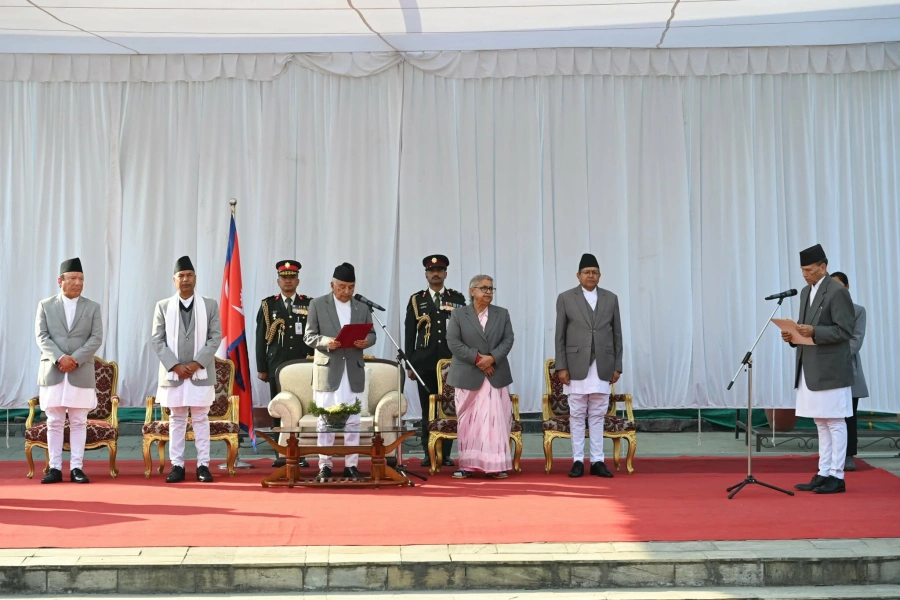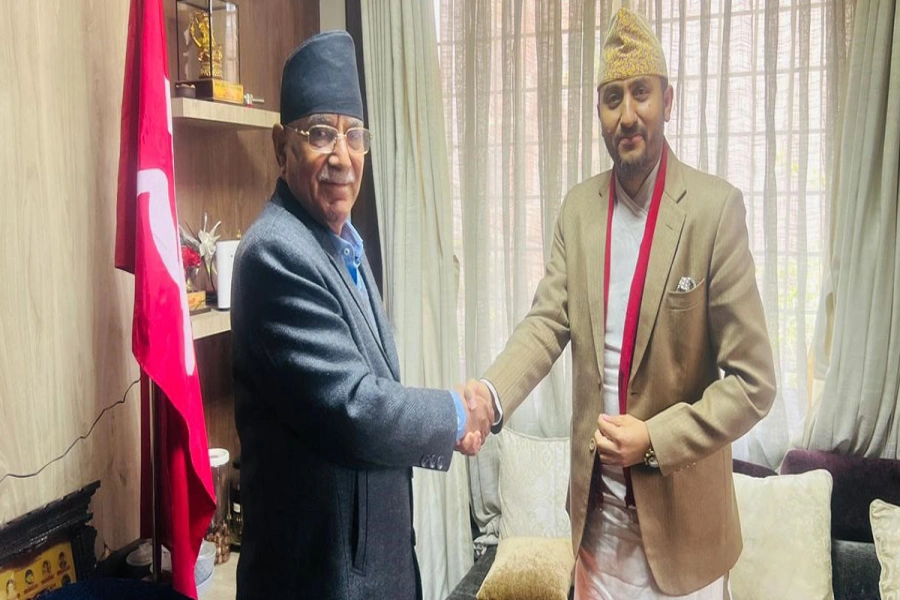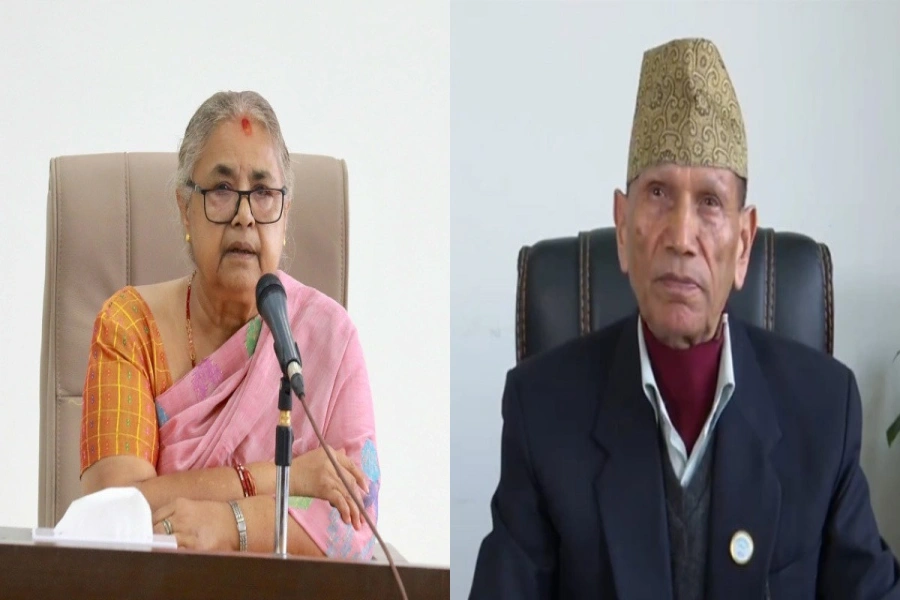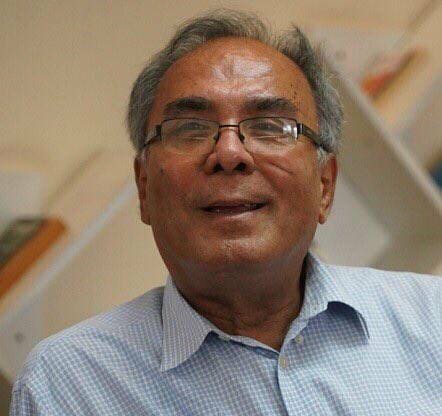Trump’s Jerusalem declaration is the latest manifestation of the unlikely president’s quest for domestic legitimacy.
TEL AVIV – US Secretary of State Henry Kissinger famously singled out Israel as a country whose entire foreign policy is actually domestic. Yet the same is true of the United States, particularly when it comes to the Israeli-Palestinian conflict.
All US presidents attempting to resolve that conflict have faced massive—indeed, insurmountable—domestic political obstacles. With his recent decision to recognize Jerusalem as Israel’s capital, Donald Trump has taken this trend to the next level, though the result may well be more of the same stagnation.
Trump’s Jerusalem declaration is the latest manifestation of the unlikely president’s quest for domestic legitimacy, which has made him almost obsessed with fulfilling his extreme and self-defeating campaign promises, including withdrawal from or renegotiation of major international treaties such as the Trans-Pacific Partnership and the Paris climate agreement. Likewise, the Jerusalem decision was meant to appease the messianic dreams of his massive evangelical constituency.
Yet Trump’s actions have wider diplomatic implications, which he seems incapable of calculating. Understandably, Trump’s declaration has been met with rage from Palestinians, with President Mahmoud Abbas asserting that “from now on” he would not accept “any role” for the US in the peace process, and even calling for the world to reconsider its recognition of Israel.
Moreover, anti-American powers—Hezbollah, Iran, Russia, and Turkey—have taken Trump’s divisive decision as an opportunity to enhance their own regional influence, at the expense of the US and its allies. They hope to position themselves as the champions of a great Arab and Muslim cause supposedly betrayed by the feeble reaction of Israel’s newfound Arab friends, particularly Saudi Arabia.
Palestinian stabs Israeli in Jerusalem; anti-Trump protest flar...

This response won’t help the Palestinians any more than it will help the US. Anger is not a strategy—a lesson that Palestinians have learned the hard way in the past. Abbas is presumably also still waiting for the United Kingdom to apologize for the 1917 Balfour declaration, the centenary of which Israel recently celebrated.
The fact is that, despite being demoralized by years of futile “peace processes,” the Palestinian masses are in no mood for a third intifada. And they blame their plight not just on the occupier, but also on their own unelected and utterly unpopular leaders, who offer them no sense of direction or achievable objectives.
The incendiary rhetoric of Palestine’s supporters in the Arab world has never done much for the Palestinian people, either. Trump’s Jerusalem declaration is not “the beginning of the end of Israel,” as Hassan Nasrallah, the leader of Hezbollah, has promised. Hezbollah is simply attempting to distract attention from its disgraceful war in support of Bashar al-Assad’s genocidal regime in Syria.
Likewise, by committing itself to the Palestinian “Islamic Resistance Forces,” Hezbollah’s patron, Iran, is simply recycling a policy that it has pursued since long before that declaration, with the goal of advancing its regional hegemonic designs. And, in fact, while the move has probably reinforced Iran’s claim to be the true defender of Jerusalem and Palestine, the biggest gains for Iran will likely be emotional. After all, the Sunni Middle East—led by a Saudi Arabia for which the quest for regional dominance amounts to a struggle for regime survival—will not accept being led by the rising Shia empire, especially if that means clashing head-on with Israel and the US.
Palestine also should not expect much from Russia. President Vladimir Putin is a realist; he knows that heeding the call for Russia to assume a leadership role in the Israeli-Palestinian conflict would damage his relationships with both parties, without bringing them any closer to a settlement. Russia’s calling is not—and has never been—that of a peacemaker.
So, in many ways, Trump’s Jerusalem declaration will not change much. As the Palestinians and their friends in the international community might realize when the dust settles, it does not preclude the city’s eventual division into two capitals as part of a peace settlement, much less guarantee Israel sovereignty over all of Jerusalem as its “eternal capital.”
In fact, it is a fantasy to assume, as Israeli Prime Minister Binyamin Netanyahu seems to do, that Trump’s support is the key to getting the Palestinians and their Arab and Muslim supporters to acquiesce to Israeli-Jewish rule over a city that is so important to both sides. Even Trump himself admitted the limits of Israel’s sovereignty in Jerusalem, and affirmed his commitment to the status quo regarding East Jerusalem’s holy sites.
Moreover, the restrained response of Arab leaders should not be interpreted as a vindication of Netanyahu’s assumption that his newfound allies in Saudi Arabia and Egypt could force the Palestinians into a US-brokered peace deal that would not meet the core requirements of their national narrative.
In any case, the days of Netanyahu’s expansionist government are numbered. The clumsy Jerusalem declaration cannot save Netanyahu’s current coalition government from massive corruption scandals and irreconcilable internal conflicts. Not even an Israel-friendly peace plan spearheaded by Trump (assuming his declaration does not foreclose it altogether) could do that.
Netanyahu’s right-wing coalition simply is no partner for a historic deal, on Jerusalem or on any other element of the dispute. The only way forward is for Israel to produce a new, more centrist coalition, while the Palestinians adopt a more sober and strategic approach. In that case, Trump’s Jerusalem declaration would not preclude a solution according to the peace parameters put forward by Bill Clinton. And, in fact, when I led the Israeli negotiating team almost two decades ago, both sides accepted the idea of Jerusalem being partitioned, albeit with flexible borders, along ethnic lines.
To improve the chances of success, America’s monopoly on the Israeli-Palestinian peace process should end. Instead, the negotiations should be handled more like those that produced the 2015 Iran nuclear deal, with a group of countries—in that case, the five permanent members of the United Nations Security Council (China, France, Russia, the United Kingdom, and the US), plus Germany—working together to achieve results.
The author, a former Israeli foreign minister, is Vice President of the Toledo International Center for Peace
© 2017, Project Syndicate
www.project-syndicate.org






































